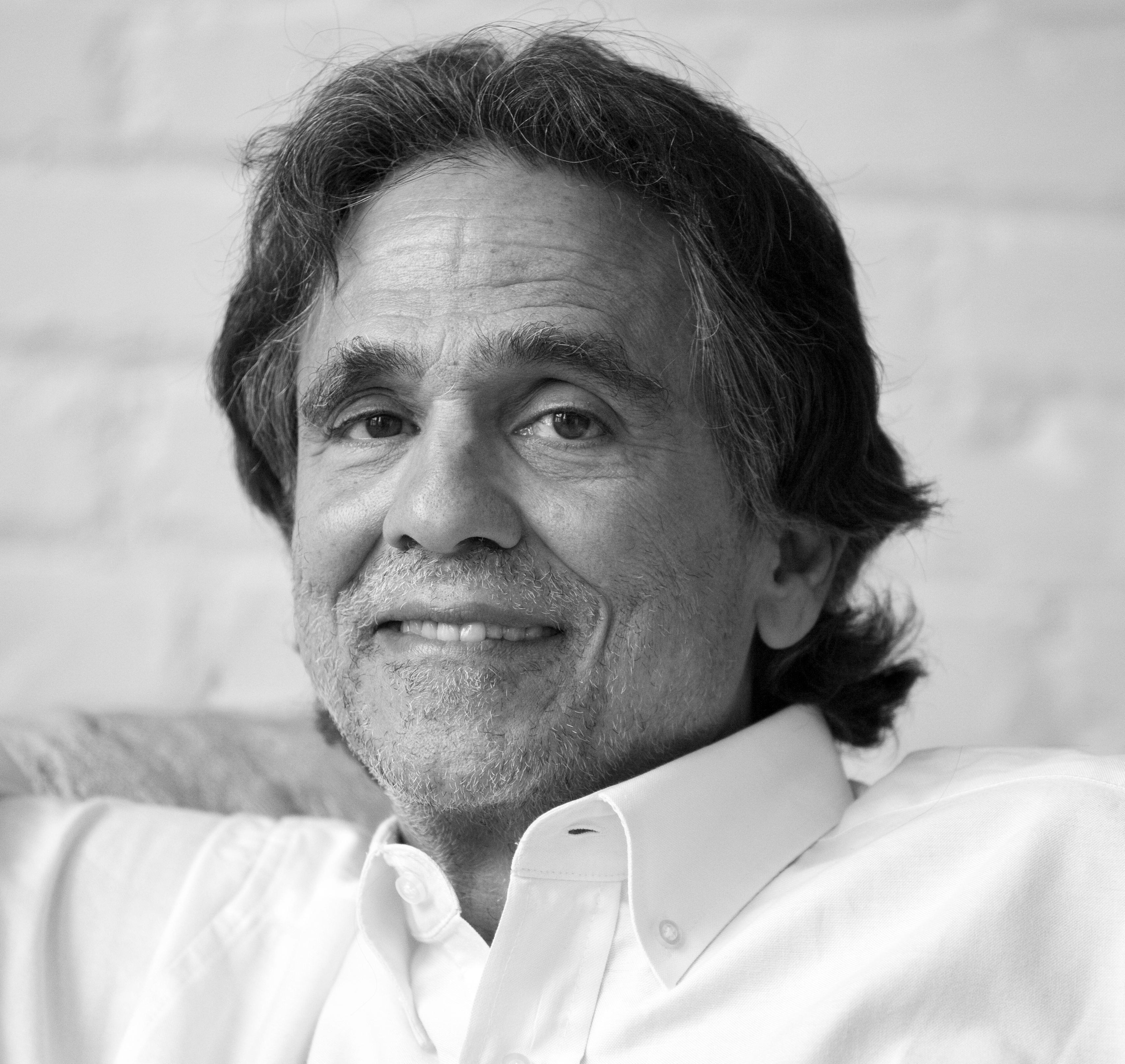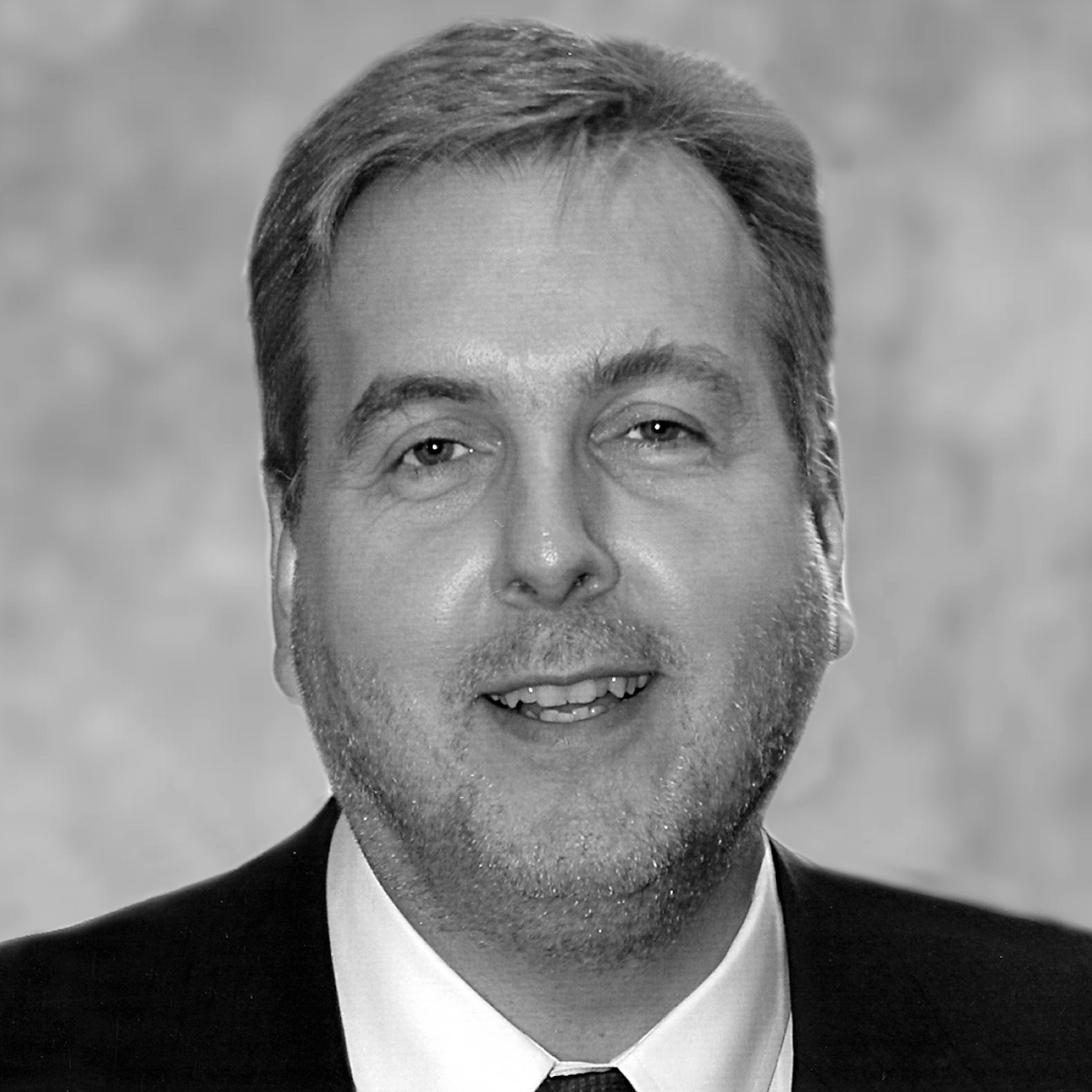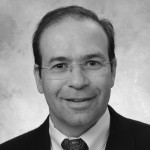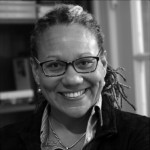PiPS draws its faculty from across Harvard Medical School’s teaching hospitals and the Faculty of Arts and Sciences at Harvard University. To date, over twenty faculty members are affiliated with the program.
Leadership | Senior Faculty | Research Directors | Research Team | Program Management | Strategic Advisors
Leadership
 Ted J. Kaptchuk, Director
Ted J. Kaptchuk, Director
Ted Kaptchuk is a Professor of Medicine and Professor of Global Health and Social Medicine at Harvard Medical School and a member of the research faculty at Beth Israel Deaconess Medical Center. Ted is deeply committed to multi-disciplinary research and has completed pioneering clinical research in asthma, irritable bowel syndrome, episodic migraine, and chronic pain. He has conducted significant neurobiological studies of the placebo effect, produced historical analyses of the placebo effect and placebo controls, published ethical assessments of the use of placebos in clinical practice and research and designed the first studies of patients’ experiences while being treated by placebos. Ted is also a lecturer in Department of Global Health and Social Medicine at Harvard Medical School.
Ted received a BA in East Asian Studies from Columbia University in 1968 and graduated with a degree in Chinese medicine from the Macao Institute of Chinese Medicine (China) in 1975. From 1999 to 2011, Ted was Associate Director of the Osher Research Center at Harvard Medical School. He was a member of NCCAM’s National Advisory Council from 1999 to 2010 and an expert panelist for the FDA from 2001 to 2005. [personal website]
 IRVING KIRSCH, PHD, ASSOCIATE DIRECTOR
IRVING KIRSCH, PHD, ASSOCIATE DIRECTOR
Irving Kirsch, PhD, is a faculty member at Harvard Medical School and Professor Emeritus of Psychology at the University of Hull, United Kingdom, and the University of Connecticut. Irving is noted for his research on placebo effects, antidepressants, expectancy and hypnosis. He is the originator of response expectancy theory and his analyses of clinical trials of antidepressants have influenced official treatment guidelines in the United Kingdom.
Irving received his PhD in psychology from the University of Southern California in 1975. In 1975, he joined the psychology department at the University of Connecticut, where he worked until 2004, when he became Professor of Psychology at the University of Plymouth. He moved to the University of Hull in 2007 and joined the faculty of the Harvard Medical School in 2011. [more]
 John M. Kelley, PhD, Deputy Director
John M. Kelley, PhD, Deputy Director
John M. Kelley, PhD, is Associate Professor of Psychology at Endicott College, a faculty member at Harvard Medical School, and a licensed clinical psychologist in the Psychiatry Service at Massachusetts General Hospital. He also maintains a private practice in general psychotherapy. John earned a bachelor’s degree with high honors from Harvard University, and MS and PhD degrees in Clinical Psychology from the University of Oregon. In addition to his expertise in psychotherapy, John has a significant background in statistics, research design, and psychometric measurement and he has served as a co-investigator or consultant on eight National Institutes of Health (NIH) research grants. His current research interests include: (1) investigating the placebo effect in medical and psychiatric disorders; and (2) understanding how the doctor-patient relationship improves clinical outcomes in medicine and psychiatry. [more]
Senior Faculty
 Arthur Barsky, MD
Arthur Barsky, MD
Arthur Barsky, MD, is a Professor of Psychiatry at Harvard Medical School and the Vice Chair for Psychiatric Research in the Department of Psychiatry at the Brigham and Women’s Hospital. His major interests are hypochondriasis and somatization, the placebo and nocebo (adverse placebo) effects, and the cognitive and behavioral treatment of somatic symptoms. He has been the principal investigator of nine NIMH and NIH research grants in these areas and has authored 150 articles, 23 book chapters, and the popular books Worried Sick: Our Troubled Quest for Wellness, and Stop Being Your Symptoms and Start Being Yourself. His work on nocebo phenomena have defined the field.
 Maurizio Fava, MD
Maurizio Fava, MD
Maurizio Fava, MD, is the Director, Division of Clinical Research of the Massachusetts General Hospital (MGH) Research Institute, Executive Vice Chair of the Department of Psychiatry and Executive Director of the Clinical Trials Network and Institute, MGH, Associate Dean for Clinical and Translational Research, and the Slater Family Professor of Psychiatry at Harvard Medical School. He obtained his medical degree from the University of Padova School of Medicine and completed residency training in endocrinology at the same university and then moved to the United States, where he completed residency training in psychiatry at the Massachusetts General Hospital. He has a long-term interest in placebo effects and is known for his innovative Sequential Parallel Comparison Design that seeks to develop efficient methods for detecting drug-placebo differences in clinical trials.
 Elliot Israel, MD
Elliot Israel, MD
Elliot Israel, MD, is Professor of Medicine at Harvard Medical School and Director of Clinical Research for the Pulmonary Division at Brigham and Women’s Hospital. Dr. Israel received his medical degree and completed his internship at Johns Hopkins University School of Medicine, his residency at Johns Hopkins Hospital and New York Hospital/Cornell Medical College, and his clinical and research fellowships at Brigham and Women’s Hospital and Harvard Medical School in Pulmonary and Critical Care Medicine, and Allergy and Immunology. Dr. Israel’s major research interests include mediators of airway reactivity, the role of arachidonic acid metabolites in airway narrowing, and genetic influences in asthma pharmacotherapeutics, particularly as they relate to responses to beta-agonists. He is actively involved in placebo research.
 SCOTT PODOLSKY, MD
SCOTT PODOLSKY, MD
Scott Podolsky, MD, is an associate professor in the Department of Social Medicine and a primary care physician at Massachusetts General Hospital. Since 2006, he has served as the Director of the Center for the History of Medicine based at the Countway Medical Library. His research, described in numerous books and articles, concerns the evolving authority of the controlled clinical trial, and relationships among physicians, the pharmaceutical industry and governmental agencies.
 Bruce Rosen, MD, PhD
Bruce Rosen, MD, PhD
Bruce Rosen, MD, PhD, is Professor of Radiology at Harvard Medical School and Professor of Health Sciences and Technology at the Harvard-MIT Division of Health Sciences and Technology. He is Director of the Athinoula A. Martinos Center for Biomedical Imaging at the Massachusetts General Hospital), a member of the Institute of Medicine (IOM) and a Fellow of the International Society of Magnetic Resonance in Medicine, which has awarded him its Gold Medal. He received his MD from Drexel University’s Hahnemann Medical College in Philadelphia and his PhD in Medical Physics from the Massachusetts Institute of Technology. He actively participates in investigating the neurobiology of placebo effects.
Research Directors
 Anthony J. Lembo, MD, Director of Clinical Research
Anthony J. Lembo, MD, Director of Clinical Research
Anthony J. Lembo, MD, is Associate Professor of Medicine at Harvard Medical School. He also serves as the Director of the GI Motility Laboratory at the Beth Israel Deaconess Medical Center (BIDMC)’s Division of Gastroenterology in Boston, MA.
Tony earned his undergraduate degree in Mathematics at Amherst College and his MD from Tufts Medical School. He subsequently completed his Internal Medicine Internship/Residency as well as Gastroenterology Fellowship at UCLA Medical Center in Los Angeles, CA. Following his fellowship he joined the faculty at UCLA Medical Center where he was Co-Director of the Functional Bowel Disorders and GI Motility Center. In 1997 he joined the faculty at BIDMC. He is actively researching the role of placebo in functional bowel disorders such as IBS and chronic constipation.
 VITALY NAPADOW, PHD, LIC. AC., DIRECTOR OF COGNITIVE NEUROSCIENCE
VITALY NAPADOW, PHD, LIC. AC., DIRECTOR OF COGNITIVE NEUROSCIENCE
Vitaly Napadow is an Associate Professor at the Martinos Center for Biomedical Imaging at Massachusetts General Hospital and Harvard Medical School in Boston, MA, where he is also the Director of the Center for Integrative Pain Neuroimaging (CiPNI). Vitaly holds a secondary appointment at the Pain Management Center at Brigham and Women’s Hospital, where he practices acupuncture. He received his Ph.D. in biomedical engineering from the Harvard-MIT Health Sciences and Technology program. Dr. Napadow’s laboratory has pioneered the application of non-invasive neuroimaging techniques to better understand the brain circuitry underlying aversive perceptual states, particularly chronic pain, and to better understand how non-pharmacological therapies ameliorate these states. Specifically, somatosensory, cognitive, and affective factors all influence the malleable experience of pain, and Vitaly’s lab has applied human functional and structural neuroimaging to localize and suggest mechanisms by which different brain circuitries modulate pain perception. Dr. Napadow has more than 130 publications in leading peer-reviewed scientific journals and serves on numerous conference, journal, and NIH review panels.
 Randy L. Gollub, MD, PhD, Director of Neuroimaging Research
Randy L. Gollub, MD, PhD, Director of Neuroimaging Research
Randy L. Gollub, MD, PhD, is Professor of Psychiatry at Harvard Medical School (HMS) and Clinical Associate at Massachusetts General Hospital (MGH) where she serves as the Associate Director of the Neuroimaging Research Program. She applies functional neuroimaging methods to investigate pain perception and the modulation of pain perception by placebo. The broader focus of Randy’s research is the interface between the technological advancement of neuroimaging acquisition and analysis methods and their application to basic and clinical neuroscience. Specifically she seeks to calibrate and validate quantitative imaging biomarkers for pain and other neuropsychiatric disorders.
Randy received her BA in Neuroscience from Northwestern and an MD and PhD in Pharmacology from Duke University Medical School. She completed her Psychiatry residency and a fellowship in single unit electrophysiology at Yale. Randy has been on faculty at Harvard Medical School since 1993.
 Roger Davis, ScD, Director of Statistics
Roger Davis, ScD, Director of Statistics
Roger Davis is an Associate Professor of Medicine at Harvard Medical School and Associate Professor in the Department of Biostatistics at Harvard School of Public Health. As a statistician for health services researchers and clinical epidemiologists in general medicine and complementary and alternative medicine, he has contributed to dozens of grant-funded investigations as a co-investigator and biostatistician. Roger earned his ScD from the Harvard School of Public Health in 1988.
 KATHRYN HALL, PHD, MPH, MA, DIRECTOR OF PLACEBO GENETICS
KATHRYN HALL, PHD, MPH, MA, DIRECTOR OF PLACEBO GENETICS
Kathryn T. Hall, PhD, MPH, MA is an Associate Molecular Biologist in the Division of Preventive Medicine at Brigham and Women’s Hospital and an Assistant Professor of Medicine at Harvard Medical School. She received her PhD in Microbiology and Molecular Genetics from Harvard University before spending 10 years in the biotech industry tackling problems in drug development, first at Wyeth and then at Millennium Pharmaceuticals, where she became an Associate Director of Drug Development. Dr. Hall returned to HMS in 2010, joining the Fellowship in Integrative Medicine at Beth Israel Deaconess Medical Center (BIDMC) in 2012, and receiving a Masters in Public Health from Harvard School of Public Health in 2014. [more]
Research Team
 Sarah Ballou, PhD
Sarah Ballou, PhD
Sarah Ballou, PhD is an Instructor of Medicine at Beth Israel Deaconess Medical Center and Harvard Medical School. She is a licensed clinical psychologist specializing in the use of mind-body interventions to treat a range of gastrointestinal conditions. Her research interests include evaluating the psychosocial impact of chronic gastrointestinal diseases as well as developing and implementing mind-body treatments to improve functioning in this patient population. Dr. Ballou earned her doctorate in clinical psychology from Northwestern University and completed a clinical fellowship in Behavioral Medicine at VA Boston Healthcare System/Harvard Medical School.
 Chantal Berna MD, PhD
Chantal Berna MD, PhD
Chantal Berna, MD, PhD, is board certified in Internal Medicine (Geneva, Switzerland) and completed a PhD in pain neuroscience at Oxford University, UK, studying psychological aspects of pain and pain modulation. Through this work, Chantal created a novel collaboration between psychiatrists, psychologists and neuroscientists, which she maintained during a year of post-doctoral research in Irene Tracey’s laboratory at Oxford. Chantal is currently a fellow in the Center for Pain Medicine at Massachusetts General Hospital and is studying the effects of specific aspects of the therapeutic encounter on placebo analgesia.
 Matthew Burke, MD
Matthew Burke, MD
Dr. Matthew Burke, MD completed his medical and neurology training at the University of Toronto and is currently a Sidney R. Baer, Jr. Foundation clinical research fellow at the Berenson-Allen Center for Non-invasive Brain Stimulation, Division of Cognitive Neurology, Beth Israel Deaconess Medical Center, Harvard Medical School.
Within the field of brain stimulation, he has developed a strong interest in the large placebo effects generated by these technologies and the challenges that such “differential” placebo effects may pose for measurements of clinical efficacy. Dr. Burke is also collaborating with Ted Kaptchuk on a line of research aimed at leveraging placebo effects for the treatment of complex neuropsychiatric disorders including functional neurological disorder.
 Cláudia Carvalho, PhD
Cláudia Carvalho, PhD
Cláudia Carvalho, PhD, is board certified in Clinical Psychology and Psychotherapy, Assistant Professor at ISPA – Instituto Universitário de Ciências Psicológicas Sociais e da Vida and member of the Applied Psychology Research Center Capabilities & Inclusion. She completed a PhD in Health Psychology in 2008 under the mentoring of Irving Kirsch. She is an active affiliated team member who leads collaborations with Irving Kirsch and Ted Kaptchuk on open-label placebo projects carried out in Lisbon, Portugal. Her research interests include open label placebo, hypnosis, suggestibility and the patient-provider relationship and how it influences health outcomes.
 Lisa Conboy, ScD, MA, MS
Lisa Conboy, ScD, MA, MS
Lisa Conboy, ScD, MA, MS, is a social epidemiologist and sociologist with an interest in the associations between social factors and health. Her main interests in placebo studies are: (1) how belief, attitudes and sense of risk are associated with healing and (2) complex and mixed method study designs and their application to health research. An Instructor at Beth Israel Deaconess Medical Center, Harvard Medical School, Lisa is also the research director at the New England School of Acupuncture where she teaches research methodology. Lisa is a founding member of the Kripalu research collaborative and has been actively involved in many placebo studies.
 MICHELLE DOSSETT, MD, PHD, MPH
MICHELLE DOSSETT, MD, PHD, MPH
Michelle Dossett, MD, PhD, MPH is a physician and clinical researcher at the Benson-Henry Institute for Mind Body Medicine at Massachusetts General Hospital and an Instructor in Medicine at Harvard Medical School. She is board-certified in both internal medicine and integrative medicine. Her research and clinical interests include mind-body medicine, integrative medicine, gastrointestinal diseases, and the mechanisms by which the patient-provider relationship affects health outcomes.
 DAN-MIKAEL ELLINGSEN, PHD
DAN-MIKAEL ELLINGSEN, PHD
Dan-Mikael Ellingsen, PhD, is a research fellow at the Martinos Center for Biomedical Imaging at Mass. General Hospital and Harvard Medical School. His research focuses on the neural and psychological mechanisms of expectations, motivation, and clinician-patient communication in the therapeutic encounter, and how this shapes subjective experiences such as pain and positive affect. To investigate these questions, Dan-Mikael uses techniques such as functional and structural magnetic resonance imaging (MRI), measures of the autonomic nervous system, pharmacological stimulation, and self-report.
Dan-Mikael received his PhD in neurophysiology from the Sahlgrenska Academy, University of Gothenburg, Sweden, in 2014. He maintains active research collaborations at the University of Gothenburg and the University of Oslo, where he holds a concurrent postdoc position (Dept. of Psychology, Univ. of Oslo, Norway).
 VANDA FARIA, PHD
VANDA FARIA, PHD
Vanda Faria, PhD, is a research fellow at Boston Children’s Hospital (BCH) and Harvard Medical School. Vanda’s research is focused on the neurobiology underlying placebo responsivity in both pediatric and adult populations. Vanda received her PhD in 2012 from Uppsala University (Sweden). During her PhD studies she was able to measure sustained anxiolytic placebo responses, by means of positron emission tomography (PET), and compared them with pharmacological treatment responses, in a clinical population with social anxiety disorder. She is currently focusing on the neural mechanisms behind pediatric placebo analgesia with the help of functional Magnetic Resonance Imaging (fMRI).
 Daniel Goldenholz, MD, PhD
Daniel Goldenholz, MD, PhD
Daniel Goldenholz, MD, PhD, is a epileptologist/engineer, who’s research focuses on two aspects of data science: 1) developing an understanding of the natural variability of seizure frequency and how this can be harnessed for improving clinical trials and clinic visits through statistical and machine learning approaches, 2) identifying and correcting modifiable risk factors for Sudden Unexpected Death in Epilepsy using advanced analytics and multimodal biosensor data. In his spare time, he is also the co-director of Boston Area Artificial intelligence and machine learning for Medicine (BAAM), and the director of the International Seizure Diary Consortium (ISDC). Affiliation: BIDMC Neurology, Epilepsy Division
 JULIA HAAS, PHD
JULIA HAAS, PHD
Julia Haas, PhD, is a clinical psychologist and research fellow at Beth Israel Deaconess Medical Center and Harvard Medical School. She received her PhD from the Philipps-University of Marburg, Germany, where she also worked as a therapist in a psychotherapeutic outpatient clinic. Her research interests include placebo effects in mental health and psychosomatic conditions as well as underlying psychosocial placebo mechanisms. In the Division of Gastroenterology at BIDMC, she is involved in research on open-label placebo in irritable-bowel syndrome.
 ERIC JACOBSON, PhD, MPH
ERIC JACOBSON, PhD, MPH
Eric Jacobson, PhD, a medical anthropologist and clinical trialist, is a lecturer in the Department of Global Health and Social Medicine at Harvard Medical School and a research associate at the Motion Analysis Laboratory, Spaulding Rehabilitation Hospital. His dissertation on the treatment of depression and anxiety in classical Tibetan medicine was based on fieldwork in northern India. He led the first studies investigating the experience of patients receiving placebo treatment, and more recently completed a clinical trial of manual therapy for chronic low back pain.
 Karin B. Jensen, PhD
Karin B. Jensen, PhD
Karin Jensen, PhD, is Assistant Professor of Psychiatry at Harvard Medical School. Her research is focused on the brain mechanisms of pain, placebo and the patient-provider relationship. In her experiments, Karin uses functional Magnetic Resonance Imaging (fMRI) to investigate how pain can be modulated by means of cortical control systems.
Karin received her PhD in clinical neuroscience from the Karolinska Institute in 2009 (Stockholm, Sweden). Since then she has performed postdoctoral research at Harvard/MGH in collaboration with mentors and colleagues at Harvard/BIDMC and the Karolinska Institute.
 Joe Kossowsky, PhD
Joe Kossowsky, PhD
Joe Kossowsky, PhD, is an Instructor of Medicine at Boston Children’s Hospital (CHB) and Harvard Medical School. His current research is focused on post-operative pain, placebo by proxy, and patient-provider relationship. Joe received his PhD in clinical psychology and neuroscience from the University of Basel in 2012 (Basel, Switzerland). In his thesis, he investigated psychobiological mechanisms of childhood anxiety and their link to adult anxiety disorders. Joe completed his psychotherapy training and worked as a psychotherapist with children and adolescents at the psychotherapeutic outpatient clinic atthe University of Basel.
 Tobias Kube, PhD
Tobias Kube, PhD
Tobias Kube, PhD, is a research fellow in General Medicine and Primary Care at Beth Israel Deaconess Medical Center, Harvard Medical School. He has received his PhD in Clinical Psychology from the Philipps-University of Marburg, Germany. His research mainly focuses on the influence of dysfunctional expectations on the development and maintenance of mental disorders, particularly major depression. Also, he is interested in mechanisms underlying the efficacy of deceptive and non-deceptive placebos. In addition to his scientific work, Tobias has also worked as a psychotherapist in a psychotherapeutic outpatient clinic and a psychiatric hospital in Marburg, Germany.
 Leon Morales-Quezada, MD, PHD, MS, MPH
Leon Morales-Quezada, MD, PHD, MS, MPH
Dr. Leon Morales-Quezada is a 3rd year post-doctoral fellow at Beth Israel Deaconess Medical Center (BIDMC) and Spaulding Rehabilitation Hospital (SRH), Harvard Medical School. He has an MD with training in emergency medicine and intensive care, and a fellowship in neurological rehabilitation. Dr. Morales-Quezada completed a Master’s in Neuropsychology and Rehabilitation, a doctorate in Cognitive Neurosciences, and a Master’s in Public Health. His research focuses on noninvasive neuromodulation and brain stimulation applied in neurocognitive rehabilitation. Currently, he is investigating the effects of open-label placebo and opioid conditioning in patients with spinal cord injury and pain. Dr. Morales-Quezada is also trained in neurophysiology and psychophysiology applied to cognitive and behavioral intervention. His goal is to understand the neurophysiology behind the placebo effect to use it in the clinical arena as therapeutic intervention.
 Giulio Ongaro, PhD
Giulio Ongaro, PhD
 DANI PASSOW
DANI PASSOW
Dani Passow is a Harvard University Chaplain and rabbi at Harvard Hillel (having been ordained at Yeshivat Chovevei Torah). He received his B.S. in interdisciplinary engineering from Cooper Union and has performed research in organic chemistry, bio-engineering, and complex systems at the University of Pennsylvania and at the New England Complex Systems Institute. His primary areas of interest include the genetics and neural mechanisms of placebo and the patient-physician relationship.
 LIRON ROZENKRANTZ, PhD
LIRON ROZENKRANTZ, PhD
Liron Rozenkrantz, PhD, is a postdoctoral associate at M.I.T brain and cognitive sciences department, interested in studying placebo effects outside clinical settings. In her PhD in neurobiology (Weizmann Institute of Science, Israel), Liron showed that placebo effects can be used to increase creativity, an aspect of human cognition. In her postdoc research, she aims to gain a broader understanding of placebo effects in daily life, and how these may be harnessed to enhance well-being.
 Liesbeth van Vliet, PHD
Liesbeth van Vliet, PHD
Liesbeth van Vliet is an Assistant Professor at the University of Leiden, the Netherlands. Her research focuses on the placebo and nocebo effects of communication, with a particular interest in serious illness. She studies the evidence behind various forms of clinician-expressed empathy, and has led a clinical trial on the placebo effects of communication (expectancy and empathy) in clinical post-operative care. She received her PhD at the University of Utrecht/The Netherlands Institute for Health Services Research (Nivel) and has worked at the Cicely Saunders Institute, Kings’ College London; NIVEL, Leiden University and is also affiliated with the OLVG Hospital Amsterdam.
 Meryem Ayşe Yücel, PHD
Meryem Ayşe Yücel, PHD
Meryem Ayşe Yücel is a Research Assistant Professor at the Neurophotonics Center, Boston University and an affiliated faculty at the Athinoula A. Martinos Center for Biomedical Imaging, Massachusetts General Hospital, Harvard Medical School. She received her PhD in biomedical engineering from Boğaziçi University, İstanbul. Meryem is an active contributor to the evolving field of optical human brain imaging and has directed and performed various studies at the Martinos Center for Biomedical Imaging, including assessment of pain during surgery and bedside monitoring of patients with epilepsy. Her research interests span functional neuroimaging and cognitive neuroscience. Her current project aims to understand the neural correlates of the clinician-patient interactions and how they affect pain perception.
Program Management
 Deborah Grose, MPA
Deborah Grose, MPA
Deborah Grose has thirty years of project and program management experience in the business, not-for-profit, and government sectors. She has managed youth employment and elder service programs and has worked as an information systems consultant. Deborah’s fundraising experience includes directing a capital campaign, grant writing and event planning. She has a BA in philosophy and music from Williams College and a Masters in Public Administration from the University of Hartford.
Strategic Advisors
 Sandra Garrelick, MBA
Sandra Garrelick, MBA
Sandra Garrelick, MBA, is a retired senior marketing and planning executive with extensive experience in complex organizations in the not-for-profit service sector. Her areas of expertise include strategic and business planning, product development; market share growth, branding, communications and crisis management, customer and community relations and community based multicultural initiatives. She has worked with numerous organizations in greater Boston including Beth Israel Deaconess Medical Center, Massachusetts General Hospital, Harvard Vanguard Medical Associates, Blue Cross Blue Shield and the Massachusetts Hospital Association. Sandra received a BA in math and economics from Simmons College and an MBA from Boston University.
 Katherine Majzoub, MPP, MD
Katherine Majzoub, MPP, MD
Katherine Majzoub was PiPS Program Manager from May 2011-July 2012. Her interest in placebo studies is inspired by its relationship to the biopsychosocial causes of disease, questions of evidence, medical pluralism, and humanism in medicine. Katherine received a BA in biology from Williams College in 2006 and a Masters in Public Policy from Harvard Kennedy School in 2011. Kate is a 2016 graduate of Harvard Medical School is doing her residency in family medicine in Seattle, WA.





